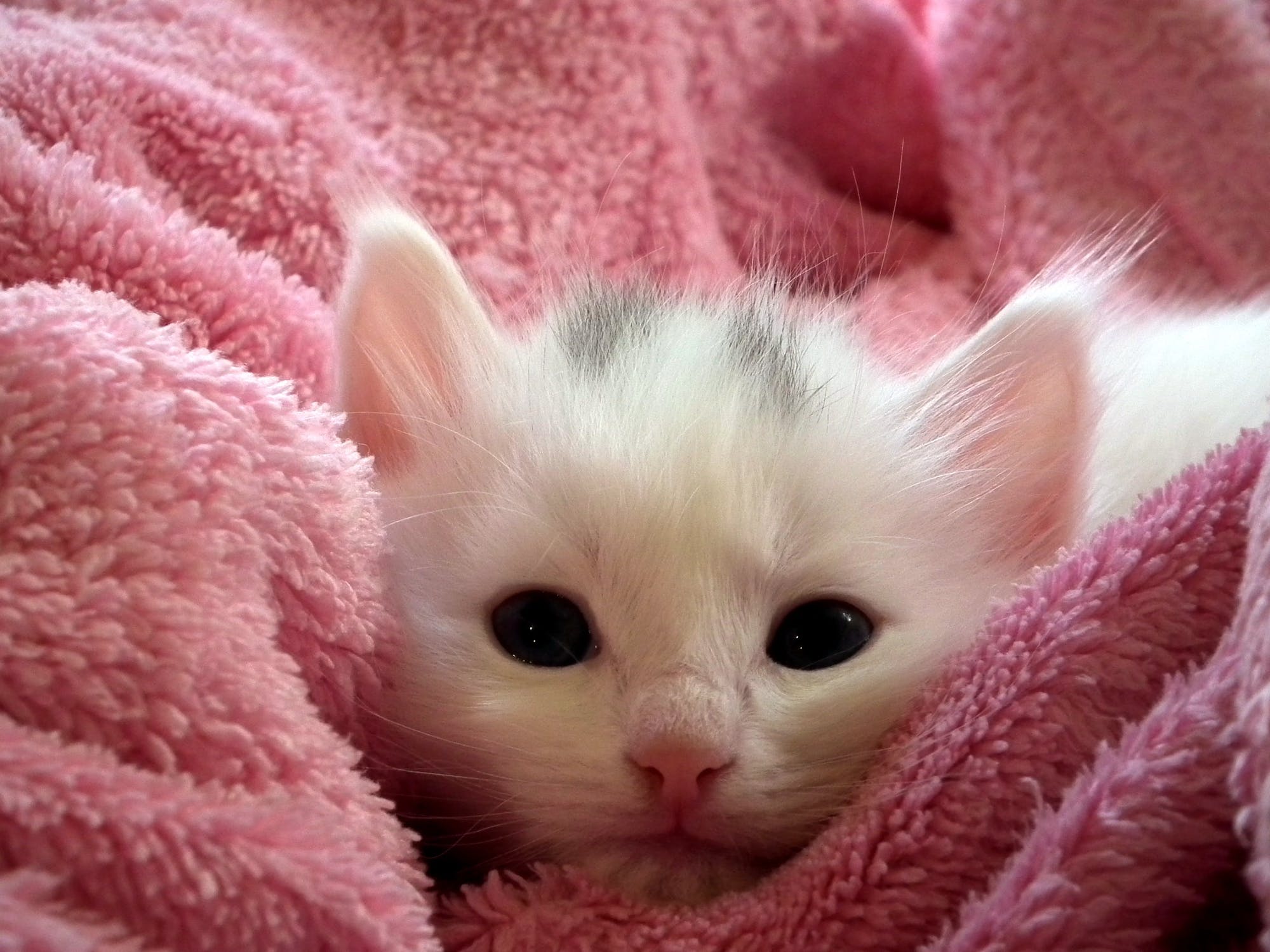New Kitten Corner
 Congratulations on your new kitten! There is nothing as irresistible as a playful kitten, but as with all babies, you wish they came with a handbook so that you would know what to do and what not to do for your youngster.
Congratulations on your new kitten! There is nothing as irresistible as a playful kitten, but as with all babies, you wish they came with a handbook so that you would know what to do and what not to do for your youngster.
Below are a few topics that we receive the most questions about that may be helpful for you as you welcome the new kitty into your family.
Vaccinations
Feline Leukemia Virus (FeLV) and Feline Immunodeficiency Virus (FIV) are both viral diseases that weaken a kitten/cat’s immune system. At Ross Bridge Animal Hospital, we recommend testing your new kitten or cat for these viruses to ensure that he or she is healthy. Until your kitten is completely vaccinated (about 16 weeks of age), it is best to limit exposure to other cats (and their litter boxes) in your house.
We typically start vaccinations around 6 weeks of age and vaccinate every 3-4 weeks until 16 weeks of age. Our recommended vaccination schedule is listed below.
6 Week Kitten Visit
-FVRCP Vaccine
-FeLV/FIV Combo Test
-Intestinal Parasite Screen
-Dewormer
-Physical Exam
9 Week Kitten Visit
-FVRCP Vaccine
-Intestinal Parasite Screen
-Dewormer
-Physical Exam
12 Week Kitten Visit
-FVRCP Vaccine
-Feline Leukemia Vaccine
-Rabies Vaccine
-Physical Exam
16 Week Kitten Visit
-FVRCP Vaccine
-Feline Leukemia Vaccine
-Bordetella Vaccine
-Physical Exam
Annual Wellness Visit
-Rabies (1-year) Vaccine
-FVRCP Vaccine
-Bordetella Vaccine
-Feline Leukemia Vaccine (Every Other Annual Visit)
-Intestinal Parasite Screen (If Owner Brings Sample)
-Dewormer
-Physical Exam
Semi-Annual Wellness Visit
-Bordetella Vaccine
-Intestinal Parasite Screen (If Owner Brings Sample)
-Dewormer
-Physical Exam
Heartworm Prevention and Intestinal Parasites
Heartworm and intestinal parasite prevention is one of the most important things that pet parents can do for their pets. Heartworm larvae are passed to healthy animals by mosquitoes that have bitten infected animals. Like dogs, cats contract heartworms as well. Studies show that 25% of heartworm positive cats are indoor cats. This means that all cats should be on heartworm prevention. Cats also contract heartworm associated respiratory disease from immature worms that migrate in their body.
Additionally, the medication used to treat heartworm infection in dogs cannot be used for cats. Therefore, the only way to protect your kitten/cat from heartworms is to consistently provide a heartworm preventative. For cats, we have two options of treatment, Centragard or Revolution Plus. Centragard is a topical preventative, given monthly, that prevents heartworms and also prevents/treats intestinal parasites. Revolution Plus is a topical preventative, given monthly, that prevents heartworms and prevents/treats fleas, ticks, intestinal parasites, and ear mites.
Another key factor in starting your kitten on the road to a happy and healthy life is to make sure that he or she is free of intestinal parasites. It is very important that kittens have multiple intestinal parasite screenings during their juvenile checkups to ensure that they are parasite free. The diagnosis of intestinal parasites is confirmed by finding parasite eggs in the stool. Just like other living things, parasites do not constantly make eggs, therefore, one negative test does not guarantee that your pet is parasite free. It is essential that pets have two negative stool samples spaced at least three weeks apart.
Flea and Tick Prevention
Flea and tick prevention is just as important to your health as it is to your pet’s. Fleas can lead to anemia and blood-born infections in our pets, but they can also lead to bacterial infections in people. Ticks can cause several types of bacterial infections in our pets and in people as well.
In Hoover, Alabama, it does not get cold enough during the winter months to kill off flea and tick populations. That’s why year round prevention is a critical part of controlling flea and tick infestations in our homes and yards.
Our preventative recommendation for our feline friends is Revolution Plus, a topical preventive that is given monthly. It kills fleas and ticks, prevents and treats ear mites, and prevents against heartworms and most intestinal parasites.
Spay/Neuter
The surgery to “fix” a female cat is called an ovariohysterectomy (OHE) or spay.
The surgery to “fix” a male cat is called an orchidectomy or neuter.
At Ross Bridge Animal Hospital, we generally recommend neutering male kittens by 5 months of age. We also advise spaying female kittens by 5 months of age, before your pet goes through her first heat cycle. This helps decrease the risk of mammary cancer in the future and reduces the overpopulation of kittens and cats in our local area.
Nutrition
Dr. Stewart recommends that kittens stay on a commercial kitten food for at least one full year, or maybe longer, depending on the specific breed. We prefer brands such as Purina or Royal Canin kitten food. It is our belief that your kitten should be on a complete and balanced diet that includes grains unless your pet has a documented allergy to grains.